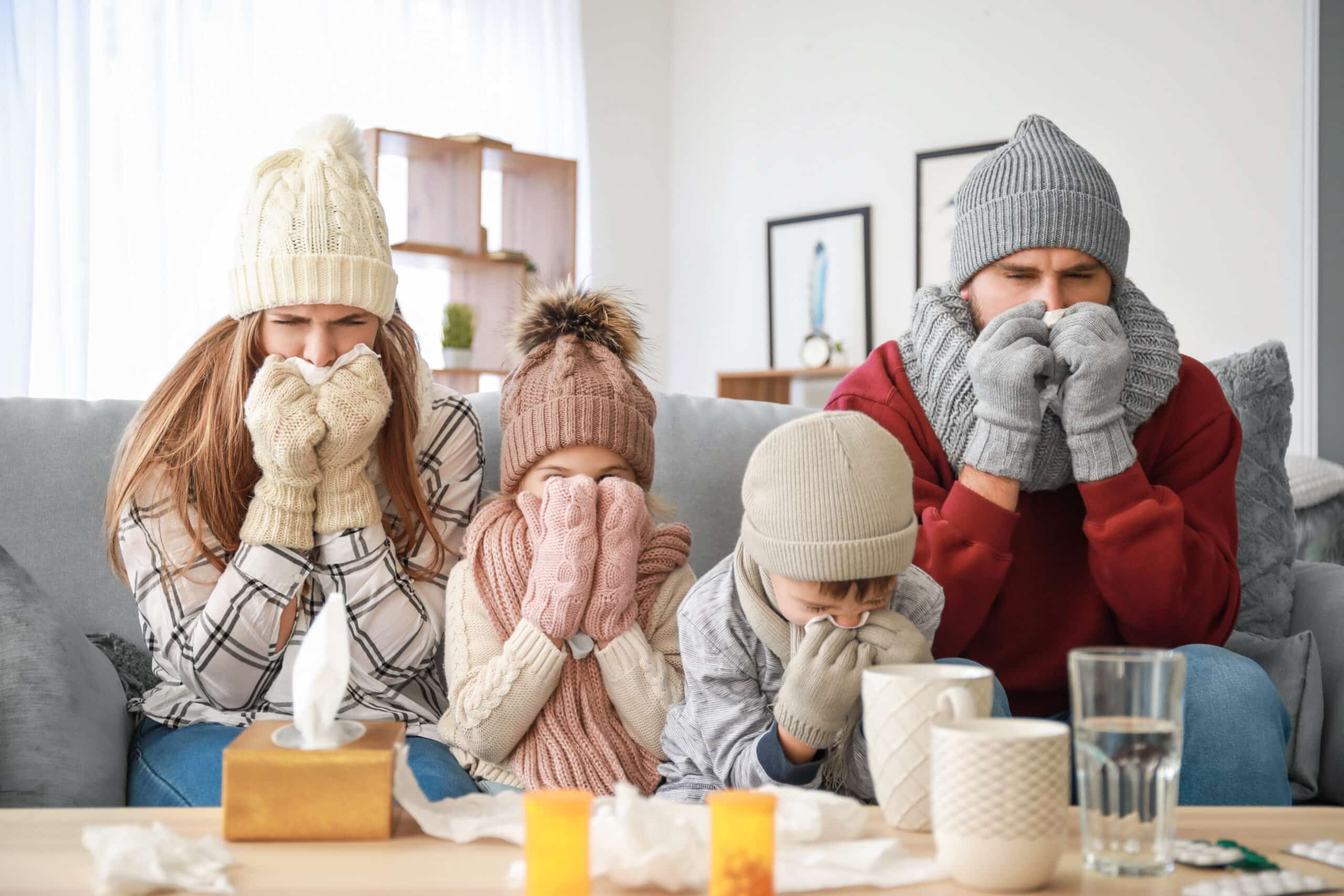Cold related illnesses, are they a real thing? Cold temperatures themselves aren’t actually dangerous for our health. What makes us sick are the sudden changes in temperature.
Fever, cough, cold, sore throat, and exhaustion are the classic seasonal ailments that don’t depend on the cold itself.
The damages of artificial heating
It’s good to stay indoor in a hot environment, but that is not actually that good for our health.
In fact, artificial heating plays an important role in the offence against our immune defenses.
Dry air in a heated room could make us sick.
Non-humidified air dries out the mucous membranes, which stop producing mucus, drying out the respiratory tract.
Mucous membranes are also influenced by the transition from hot to cold temperatures. In this case it’s a classic cold, which further reduces the production of mucus.
The mucus is like a wall, a barrier that prevents viruses and bacteria from entering our body. The pathogens stopped by the mucus produced by the mucous membranes, are unable to penetrate the respiratory tract and thus the infection doesn’t occur.
On the other hand, with parched nose and throat caused by dry air, viruses and bacteria can easily enter our body.
How cold temperatures affect illnesses
Cold temperatures’ role on ailments is only relevant in viral diseases. This is because viruses of all kinds survive the cold longer. For the same reason, Covid had its greatest peak in the winter season, which then declined during summer. On the other hand, only 10% of seasonal ailments have a bacterial origin instead of being viral.
Colds, coughs, fevers, sore throats, and exhaustion are not only cold temperatures’ fault. Hot temperatures are also to blame. When a person stays inside closed in a shared environment, the risk of contracting infections is greater, just because there are other people with them. Plus, the hot temperatures generated by artificial heating generates dry air which ends up drying the mucous membranes.
Cold related illnesses, how the contagion occurs
The contagion of cold related illnesses can occur directly or indirectly.
In the direct form, transmission occurs through saliva, which spreads microscopic droplets that we expel when we speak, sneeze or cough.
These viruses can also remain alive for a few hours outside of our body. For this reason, it’s advisable not to stay in an environment where the microscopic infected droplets have spread. This is the indirect kind of transmission, and it can also occur when our hands touch infected surfaces.
How to defend yourself from cold related illnesses
To defend yourself from cold related illnesses, you need to follow few but essential rules, those that are essentially appropriate for fighting all viruses.
First, your body’s airways have to be covered. It’s not required to wear a face mask, but a scarf might be suitable as a form of protection. Scarves help maintain the right humidity on your body.
Breathing is essential, too: the rule is to inhale through the nose and exhale through the mouth.
Another important move for prevention is frequently washing your hands, especially after having been in public and crowded places. You should always sneeze into a handkerchief or with your hand in front of your mouth.
Vitamin D levels should be kept high to help the immune system.
Vitamin C, on the other hand, does not prevent cold related illnesses, but reduces the duration of their symptoms.
Vitamin D tests
The blood test for vitamin D is done through a blood draw.
Vitamin D should be examined while the patient is fasting, the results are obtainable a few days later.
The tests to evaluate the level of vitamin D in your body can be performed at:
Laboratorio Maiello in Naples, in Via Sant’Alfonso Maria de’ Liguori 3. It operates continuously from Monday to Friday from 7am to 7pm, and from 7:30am to 1pm on Saturdays.
Toma Centro Sud in Naples, in Via Generale Francesco Pignatelli 2. It operates continuously from Monday to Friday from 7:30am to 6:30pm, and from 7:30am to 11:30am on Saturdays.
Laboratorio Miglio d’Oro in Ercolano, in Via Emilio Bossa 24. It operates continuously from Monday to Friday from 7:30am to 1:30pm, and from 8:30am to 11:30am on Saturdays.

